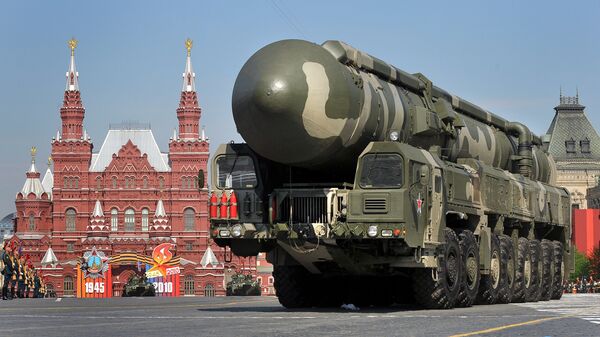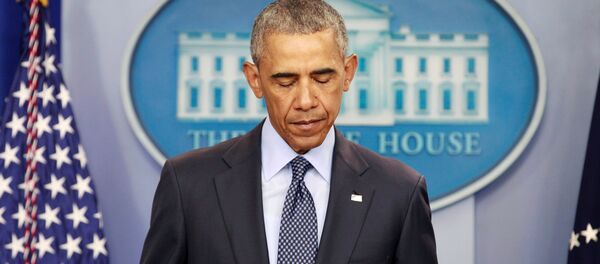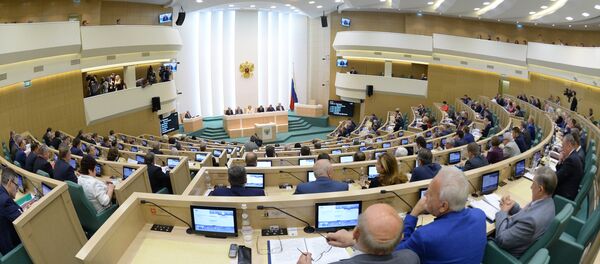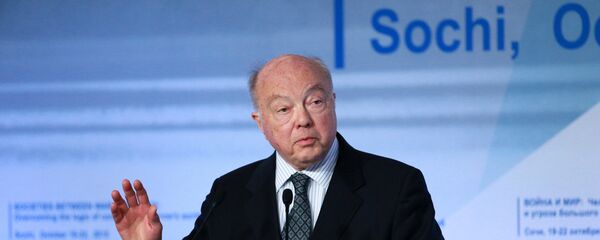The White House is yet to confirm making the proposals. For his part, Kremlin presidential spokesman Dmitri Peskov commented that so far, "we know nothing about this."
Still, according to the independent online newspaper Svobodnaya Pressa, "it's highly unlikely that the Washington Post made up the story out of thin air."
Accordingly, the news website suggested, it's worth taking a look at the offer in detail. "At first glance, the proposal written about by the newspaper looks like an attempt to improve relations with Russia on questions of fundamental importance. After all, politicians can make all sorts of statements, but an agreement on the quantity of nuclear weapons is one of the key components in the system of global security."
The START-3 or New Start treaty was signed in April 2010, entering into force in 2011. The treaty lasts for 10 years. If it is extended for another five years, this would assure that even a two-term Clinton or Trump presidency would not be able to alter the terms of cooperation with Russia in the nuclear field, "thus ensuring some measure of stability," so the logic goes.
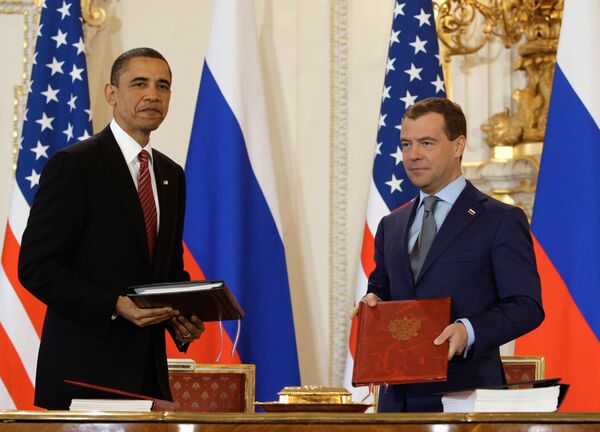
"On the other hand," Svobodnaya Pressa noted, "Obama's initiative runs counter to Washington's general policy. NATO is moving its military infrastructure up to Russia's borders. The West is not even hiding its efforts to destabilize the situation in Ukraine, Moldova, the South Caucasus and Central Asia. Simply put, Russia is being hemmed in strategically. From this perspective, the White House is proposing that Moscow reject its last guarantee of security – its nuclear shield."
The initiative, according to Alexandrov, is related to US military planning and construction efforts, not the assurance of strategic balance and peace. "In connection with the aggravation of the military-political situation, Washington does not know what kind of weapons to build. If we extend START-3, they will be aware of our refusal to build additional strategic nuclear weapons. At that point, the US will be free to continue to quietly build up its missile defense system."
Meanwhile, the analyst continued, "if they face the prospect of increasing Russian strategic forces, the whole idea of a missile defense system will be bankrupted. Anti-ballistic missile defense is ineffective today, but the new types of missiles which will be delivered by 2021 will change the situation further."
However, Alexandrov warned, "if the Treaty is extended, and against a small number of missiles, the anti-missile system can be effective."
"The problem is that the US missile defense system is being deployed too close to our country. They are looking to shoot down missiles even before the separation of the warheads – to intercept a missile armed with ten warheads. In this way, the anti-missile system's effectiveness increases considerably. If we maintain the same number of missiles, while the US continues to expand their missile defense system, we will lose. Extending START-3 gives Washington carte blanche for the deployment of a missile defense system; there is no other way of looking at it."
Alexandrov suggested that Russia, in the interests of preserving the strategic nuclear balance, must engage with new missile technologies – the so-called supersonic missiles, like Sarmat, expected to replace the R-36, and the Barguzin rail-based ICBM system.
The analyst emphasized that "it would be another thing entirely if the Americans were to reject the development of their missile defense system; then it would be possible to conduct serious negotiations. In the meantime, there is no sense in doing so."
For his part, Alexander Perendzhiev, an expert from the Russian Association of Independent Military Experts, suggested that the latest US initiative "is not attempt to show Obama's peaceful disposition, so much as an effort to mark his place in history…Obama wants everyone to remember how he fought for world peace; at the same time, he wants to say that the US made a great proposal, while Russia prevented its realization."
Ultimately, the analyst noted, it's entirely possible that the White House leaked the story to the Washington Post to test the waters of Moscow's possible reaction. "It's probably not a coincidence that the story appeared on the eve of the Russia-NATO summit," Perendzhiev concluded.
